 2015 Hyundai i40 Combi (facelift 2015) Dimensions, Size & Specs
2015 Hyundai i40 Combi (facelift 2015) Dimensions, Size & SpecsMeasurements of the 2015 Hyundai i40 Combi, engineered for optimal performance and comfort
| Dimensions | |
|---|---|
| Length: | 4775 mm188.0 in15.7 ft |
| Width: | 1815 mm71.5 in6.0 ft |
| Height: | 1470 mm57.9 in4.8 ft |
| Ground Clearance: | 140 mm5.5 in0.5 ft |
| Trunk Capacity: | 506 liter17.9 cu ft |
| Trunk Capacity (Max): | 1672 liter59.0 cu ft |
| Weight Specifications | |
| Curb Weight: | 1428-1539 kg3148-3393 lbs |
| Maximal permitted Weight: | 2030-2150 kg4475-4740 lbs |
| Roof Load: | 100 kg220 lbs |
| Tire Specifications | |
| Rims Sizes: | 16-inch rims:
|
| Tire Sizes: |
|
The Hyundai i40 Combi facelift, produced between 2015 and 2018, is a versatile station wagon designed to accommodate families and individuals seeking both style and practicality. Measuring 4775 mm (188 inches) in length, 1815 mm (71.5 inches) in width, and standing 1470 mm (57.9 inches) tall, this vehicle strikes a balanced presence on the road without overwhelming size. Its curb weight ranges between 1428 and 1539 kg (3148 to 3395 lbs), with a maximum weight capacity between 2030 and 2150 kg (4474 to 4740 lbs), ensuring solid structural integrity and load-bearing capability.
The Hyundia i40 Combi facelift is engineered for practical cargo solutions, offering a generous luggage capacity of 506 liters (17.9 cubic feet) with all seats in place. When rear seats are folded, luggage space expands impressively to 1672 liters (59 cubic feet), accommodating bulky items, making it ideal for road trips or transporting large loads. Its roof load limit is 100 kg (220 lbs), further enhancing cargo versatility with options for roof racks or carriers.
Ground clearance is measured at 140 mm (5.5 inches), providing a comfortable ride height suited for urban driving and occasional light off-road conditions, while helping to maintain aerodynamic efficiency. The Hyundai i40 Combi facelift comes fitted with a range of rim sizes—from 7.0J x16 up to 8.0J x18—and compatible tire sizes including 205/60 R16, 215/50 R17, and 225/45 R18, offering options for customization and optimized driving dynamics.
Overall, the 2015-2018 Hyundai i40 Combi facelift station wagon combines practical dimensions with flexible cargo space and solid build quality, making it a standout vehicle in its segment for those who prioritize utility without compromising style and comfort.
Discover the standout features that make the 2015 Hyundai i40 Combi a leader in its class
Have a question? Please check our knowledgebase first.
The Hyundai i40 Combi facelift (2015-2018) has an overall length of 4775 mm (187.8 inches), a width of 1815 mm (71.5 inches), and a height of 1470 mm (57.9 inches). These dimensions place it firmly within the mid-size station wagon category, offering a substantial presence on the road while maintaining practical proportions for everyday use.
The Hyundai i40 Combi facelift weighs between 1428 kg and 1539 kg (3147 to 3395 lbs) when empty, depending on the specific trim and equipment. Its maximum weight capacity ranges from 2030 kg to 2150 kg (4474 to 4740 lbs), accommodating passengers and cargo safely within the vehicle's design limits.
With the rear seats upright, the Hyundai i40 Combi provides 506 liters (17.9 cubic feet) of luggage space, which is ample for typical luggage or grocery runs. Folding down the rear seats expands the cargo capacity significantly to 1672 liters (59.0 cubic feet), making it excellent for transporting larger items or substantial loads.
The ride height or ground clearance of the Hyundai i40 Combi facelift is 140 mm (5.5 inches). This clearance is typical for a family-oriented station wagon, providing a balanced ride quality. It is sufficient for urban driving and most light off-road conditions but isn’t intended for rugged terrain or deep snow.
This generation offers several rim and tire options. The rim sizes include 7.0J x 16, 7.5J x 17, 8.0J x 18, and the equivalent tire sizes are 205/60 R16, 215/50 R17, and 225/45 R18. These choices allow for a balance between ride comfort, handling, and aesthetic preferences.
Standard residential garages typically range around 2400 mm (7 ft 10 in) in width and 4800 mm (15 ft 9 in) in length. With the i40 Combi measuring 1815 mm (71.5 inches) wide and 4775 mm (187.8 inches) long, it fits well within the spatial constraints of a standard garage with room to spare on the sides. However, drivers should consider extra space for opening doors and walking around the car.
Compared to the original Hyundai i40 Combi launched in 2011, the facelifted 2015-2018 model retains very similar exterior dimensions with minor adjustments for styling and aerodynamics. The length of 4775 mm and width of 1815 mm remain largely unchanged. The facelift focused more on design tweaks and technology updates rather than altering vehicle size, maintaining the successful mid-size station wagon formula.
The Hyundai i40 Combi sits competitively in the mid-size station wagon segment. For example, it is slightly longer than the Volkswagen Passat Variant (approx. 4767 mm) but similar in width, and offers a comparable or larger cargo capacity than many rivals. Its balanced dimensions provide a good mix of interior space and urban maneuverability, making it a strong competitor among family wagons like the Skoda Octavia Combi and Ford Mondeo Estate.
The Hyundai i40 Combi facelift supports a roof load of up to 100 kg (220 lbs). This allows owners to safely install roof racks, bike carriers, or cargo boxes without risking damage to the roof structure or affecting vehicle stability. It's ideal for outdoor enthusiasts or families needing extra carrying capacity for trips.
The curb weight differences in the Hyundai i40 Combi facelift arise from the range of engine options, transmission types, additional equipment, and choice of materials. Higher trims typically add features such as panoramic sunroofs, advanced infotainment systems, and safety technologies that increase overall weight. Additionally, larger wheel and tire packages contribute to variation, influencing fuel economy and handling.
Discover similar sized cars.
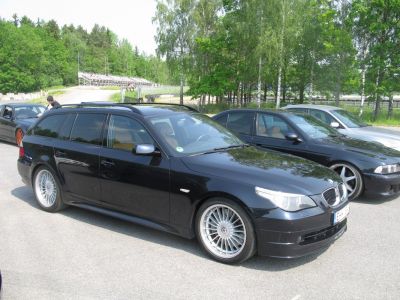
| Production: | 2005-2011 |
|---|---|
| Model Year: | 2005 |
| Length: | 4843 mm190.7 in |
| Width: | 1846 mm72.7 in |
| Height: | 1491 mm58.7 in |
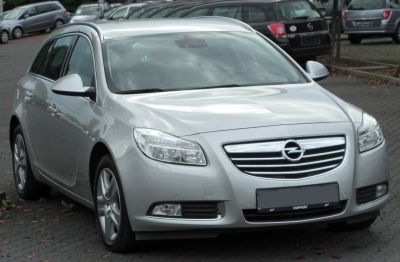
| Production: | 2009-2013 |
|---|---|
| Model Year: | 2010 |
| Length: | 4830-4908 mm190.2-193.2 in |
| Width: | 2084 mm82.0 in |
| Height: | 1498-1520 mm59.0-59.8 in |
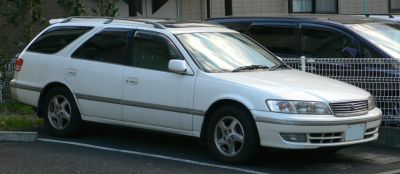
| Production: | 1997-2002 |
|---|---|
| Model Year: | 1997 |
| Length: | 4775 mm188.0 in |
| Width: | 1785 mm70.3 in |
| Height: | 1470 mm57.9 in |
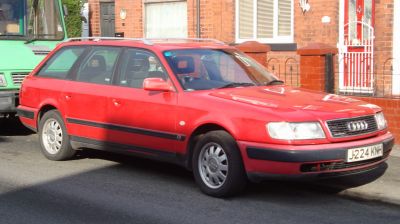
| Production: | 1991-1994 |
|---|---|
| Model Year: | 1990 |
| Length: | 4790 mm188.6 in |
| Width: | 1777 mm70.0 in |
| Height: | 1440-1448 mm56.7-57.0 in |
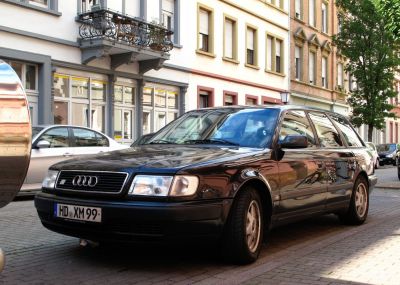
| Production: | 1991-1994 |
|---|---|
| Model Year: | 1992 |
| Length: | 4790 mm188.6 in |
| Width: | 1805 mm71.1 in |
| Height: | 1422-1454 mm56.0-57.2 in |
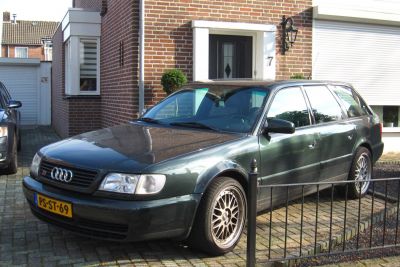
| Production: | 1994-1997 |
|---|---|
| Model Year: | 1995 |
| Length: | 4797 mm188.9 in |
| Width: | 1804 mm71.0 in |
| Height: | 1440 mm56.7 in |
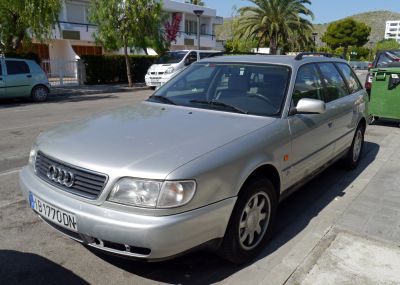
| Production: | 1994-1997 |
|---|---|
| Model Year: | 1995 |
| Length: | 4797 mm188.9 in |
| Width: | 1783 mm70.2 in |
| Height: | 1440 mm56.7 in |
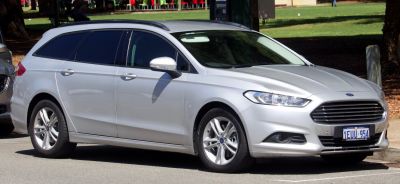
| Production: | 2014-2018 |
|---|---|
| Model Year: | 2014 |
| Length: | 4867 mm191.6 in |
| Width: | 2121 mm83.5 in |
| Height: | 1501 mm59.1 in |
